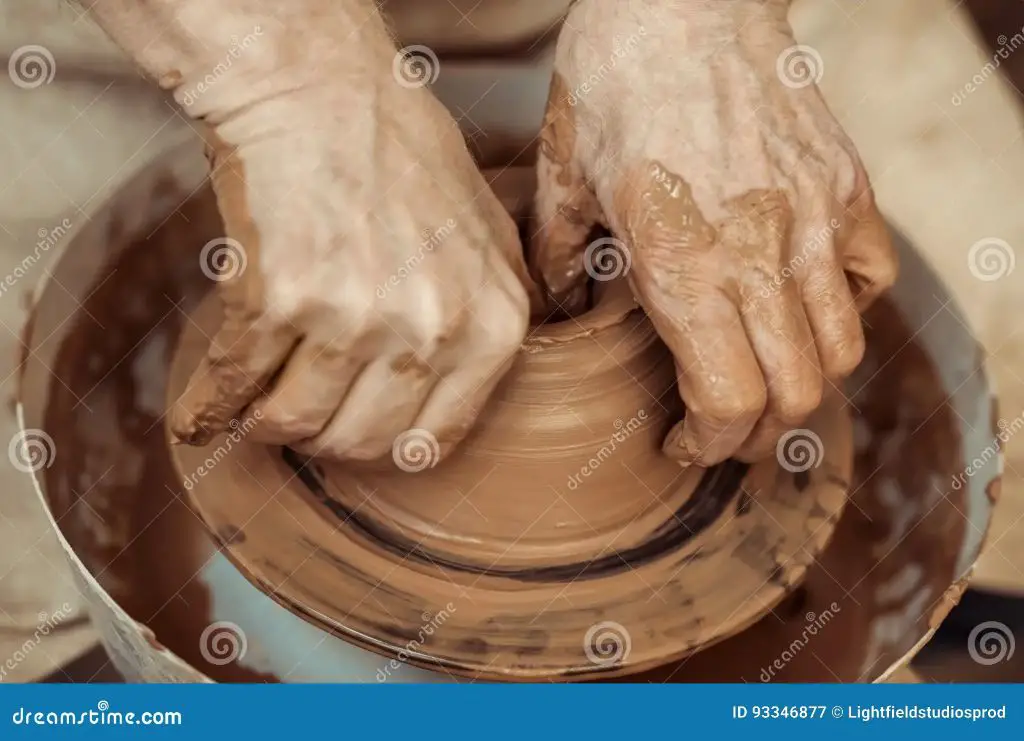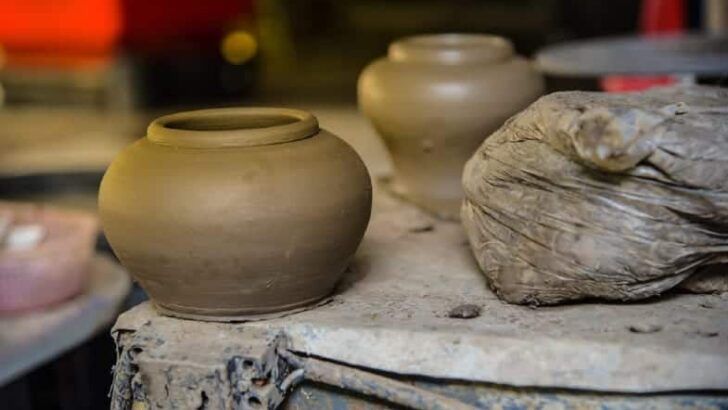Is Pacifica A Good Pottery Wheel?
Pacifica pottery wheels have been manufactured by Laguna Clay Company since the early 1990s. Laguna is based in California and is one of the leading US manufacturers of ceramic equipment and supplies. Pacifica wheels were designed to be high-performing yet affordable options for potters and ceramic artists.
In this article, we’ll provide a comprehensive look at Pacifica pottery wheels. We’ll cover the history of Pacifica, the different models available, performance factors like power and torque, size and portability considerations, ease of use and setup, reliability based on customer experiences, pricing, and Laguna’s customer support. By the end, you’ll have all the information you need to determine if a Pacifica is the right wheel for your pottery needs.
History of the Pacifica Brand
Pacifica Potter’s Wheels was founded in 1972 by James Loverin. Loverin had been teaching pottery for many years and wanted to design a high quality, durable, and affordable potter’s wheel (source: https://www.mnclay.com/equipment/wheels/pacifica/pacifica_wheels.aspx). The original Pacifica wheel models were designed by Loverin to be simple but extremely sturdy and reliable. They featured heavy cast iron wheels, powerful motors, and quality components.
The origins of the Pacifica wheel design stem from Loverin’s desire to create an affordable but high performing wheel that could withstand heavy daily use in classroom settings. The simple mechanical design focused on durability and ease of use rather than electronic features. Pacifica wheels quickly earned a reputation among potters and ceramics instructors for being a reliable “workhorse” wheel at an affordable price point (source: https://www.thesprucecrafts.com/major-pottery-wheel-brands-2745982).
Pacifica Wheel Models
Pacifica offers several different pottery wheel models to choose from. The main wheels include:
- GT400 – This is Pacifica’s most popular model. It has a powerful 1/2 HP motor and variable speed control from 0-250 rpm. The GT400 comes with a standard 12″ aluminum splash pan. It weighs 108 lbs. (source)
- GT800 – This is Pacifica’s heavy duty wheel with a 3/4 HP motor. It has the same speed range as the GT400 but with more power for larger loads. The GT800 comes with a larger 14″ cast iron splash pan. It weighs 147 lbs. (source)
- CL300 – This compact model has a 1/3 HP motor and 10″ aluminum splash pan. With a weight of just 77 lbs, the CL300 is the most portable Pacifica model. The speed ranges from 0-250 rpm. (source)
The main differences between the models are the motor power, weight, size, and materials. The GT400 and GT800 offer more power for larger loads, while the CL300 is better for portability.
Performance and Power
The Pacifica line of pottery wheels is known for providing strong power and performance capabilities for potters. The higher-end Pacifica models like the GT800 have a 1/2 horsepower motor capable of generating a maximum torque rating up to 100 lbs for centering clay (Pacifica Pottery Wheels). This level of power allows potters to center even very large lumps of clay with ease.

The GT400 model offers slightly less power at 1/3 horsepower but still provides ample strength for most pottery needs, able to generate torque up to 30 lbs (Pacifica GT400 Electric Potter’s Wheel – Axner Pottery Supply). The motors in Pacifica wheels are very responsive and allow spinning speeds up to 260 RPM on high-end models.
Overall, Pacifica pottery wheels are designed to provide robust power and high spinning speeds to handle anything a potter needs for throwing clay. The performance capabilities in torque, horsepower, and RPM allow Pacifica wheels to center, shape, and throw clay with ease.
Size and Portability
The Pacifica pottery wheels come in different sizes to accommodate the needs of different potters. Some key dimensions include:
- The GT-400 has a wheel head diameter of 13 inches and overall dimensions of 20 x 20 x 28 inches [1]
- The GT-800 has a wheel head diameter of 14.5 inches and overall dimensions of 24 x 24 x 31 inches [2]
In terms of weight, the GT-400 weighs around 92 lbs while the GT-800 is heavier at 130 lbs [2]. The heavier weight contributes to stability when centering large amounts of clay. Some potters add extra weight for stability.
The wheels have a steel frame with rubber feet to reduce vibration. They can be moved fairly easily on flat, smooth surfaces by tipping and rolling on the rubber feet. The GT-400 is more portable for moving between studios or classrooms. The GT-800 may require two people to lift and move it safely.
Ease of Use
The Pacifica GT400 is designed for simplicity and accessibility of features according to most reviews. The wheel head has basic speed and start/stop controls that are intuitive and easy to operate even for beginners (Source). The speed control knob allows for fine adjustments to the spinning speed, enabling potters to find just the right pace for their workflow. The foot pedal is responsive and allows for hands-free control while throwing (Source 2). Some users note the controls could be slightly more refined, but overall reviewers find the Pacifica wheel straightforward to operate.
Reliability
The Pacifica pottery wheel receives mixed reviews on its reliability. Some owners have reported issues with the wheel stopping quickly when the pedal is turned off, making trimming and throwing difficult. One review on the Laguna Pacifica Pottery Wheel Review blog notes “The wheel does not stop quickly when the pedal is turned off. When you are trimming or working and you want to stop, the wheel keeps spinning for some time.” This can make precision work challenging.
However, other reviews on forums like Pacifica wheel issue – Equipment Use and Repair suggest mechanical issues like slipped belts could be the cause of stopping problems, rather than an inherent flaw with the Pacifica model. With proper maintenance and belt replacement, most owners report good reliability. Overall, the Pacifica offers decent reliability for its price point, but some owners have experienced issues like slow stopping times that impact usability.
Cost
Pacifica pottery wheels range in price from around $600 for the basic model up to $1500 or more for the higher-end models like the GT800. The mid-range GT400 model costs around $1000-$1200.
Overall, Pacifica wheels offer excellent value for money. They are priced competitively with other major pottery wheel brands like Brent and Shimpo. Many potters report that Pacifica wheels have comparable quality and performance to more expensive brands. The lower cost makes Pacifica an appealing option for beginner and intermediate potters, schools, and studios on a budget.
More advanced potters may want to invest in the GT800 or other high-end Pacifica models to get professional-grade power and features. But the entire Pacifica line provides good capabilities and durability at reasonable prices. For most home pottery studios, Pacifica wheels give you the most bang for your buck.
Customer Support
Laguna Clay provides excellent customer support for their Pacifica pottery wheels. Per the Pacifica Warranty Registration page on their website, Pacifica wheels come with a 5-year warranty that covers the motor, components, and structural integrity when used under normal conditions and load limits.
The warranty covers parts and labor, so Laguna will repair or replace defective parts at no cost to the customer. Customers simply need to contact Laguna Clay directly via phone, email, or an online form to initiate a warranty claim. Laguna promises quick turnaround and responsive support.
According to customer reviews, Laguna’s customer service team is very helpful and knowledgeable when troubleshooting issues. They work diligently to diagnose problems and send replacement parts in a timely manner. Overall, the warranty coverage and responsiveness of the Laguna customer support team are excellent assets for Pacifica owners.
Summary
In summary, Pacifica offers both benefits and drawbacks as a pottery wheel brand. On the plus side, Pacifica wheels tend to be powerful, smooth, and reliable for most home ceramic artists. Their signature whisper-quiet motors allow for quiet operation. Pacifica’s mid-range models like the KM-405 provide ample 12″ throwing capacity at an accessible price point. More advanced wheels like the Brent C offer industrial-level power and capabilities. Pacifica wheels are also backed by responsive customer service.
Potential downsides include smaller tabletop models lacking strength for larger projects. Portability is also an issue on some heavier models like the Brent C. Pacifica wheels can also have a learning curve for beginner artists. While Pacifica offers quality at moderate prices, competitors like Shimpo and Speedball often undercut Pacifica’s pricing.
Overall, Pacifica delivers professional-grade performance for home pottery enthusiasts ready to invest in a serious wheel. Pacifica is a recommended brand for intermediately skilled ceramic artists focused on quality craftsmanship. Beginners may want to start on a more affordable and basic wheel until they hone their skills. For advanced potters needing high-powered electric wheels with long-term reliability, Pacifica remains a trusted choice.



